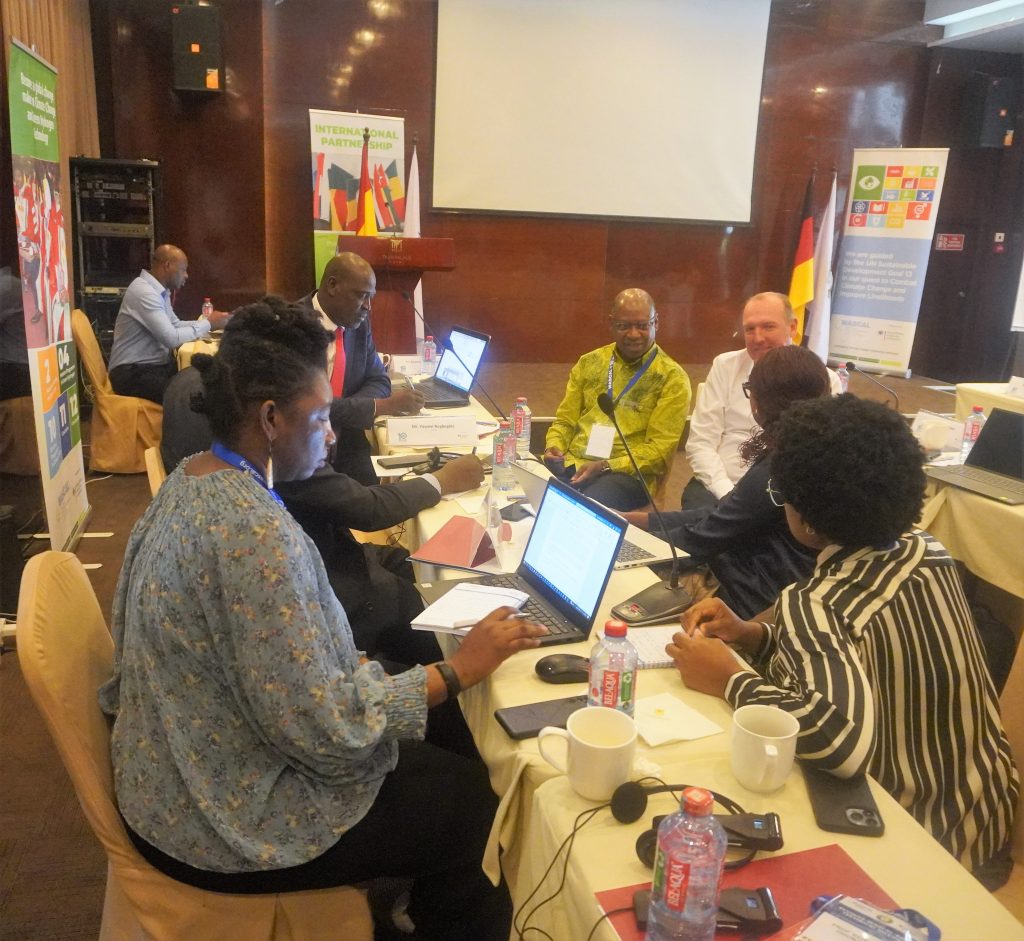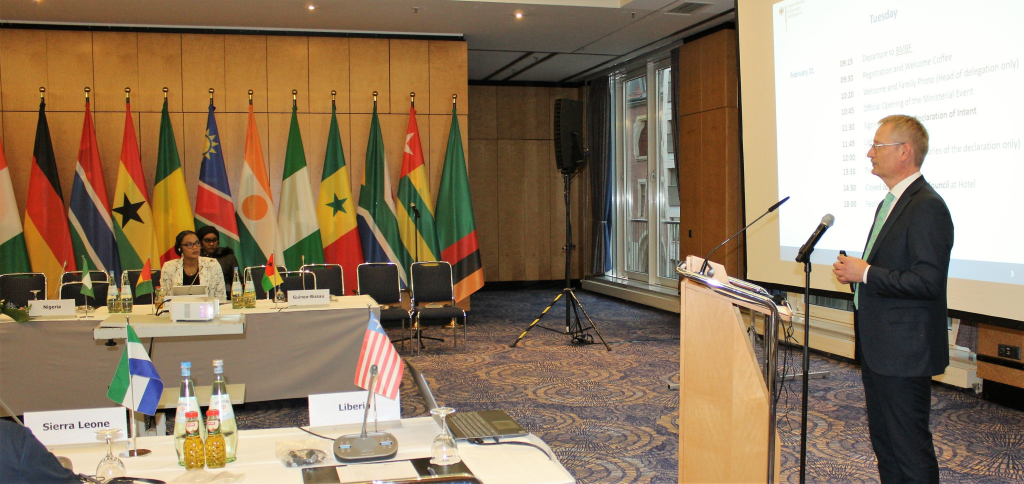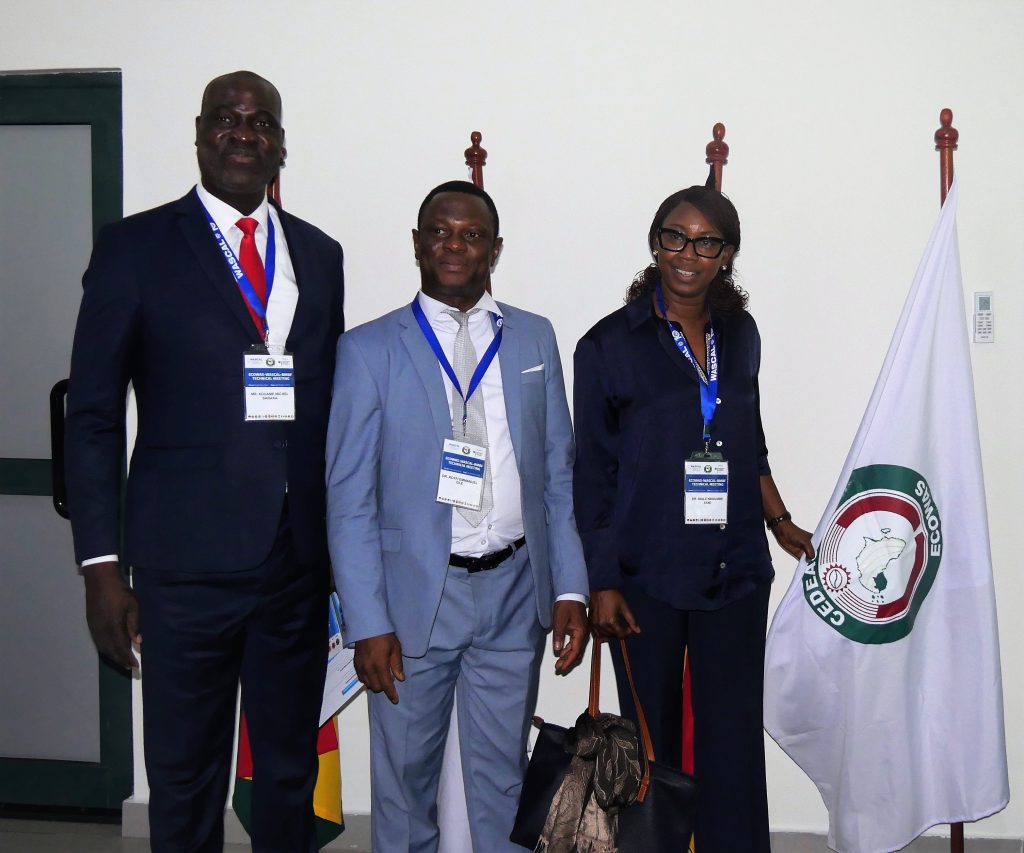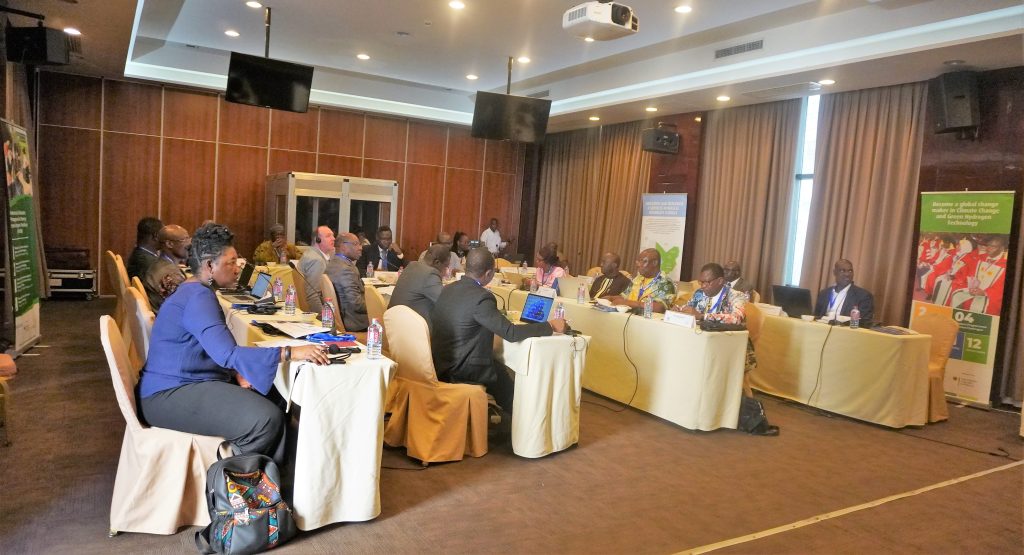
The West African Science Service Centre on Climate Change and Adapted Land Use (WASCAL), and the Economic Community of West African States (ECOWAS) have held a two-day technical meeting in Accra to define the framework for the intensification of the cooperation between the two institutions with a view of WASCAL becoming an arm of ECOWAS in the implementation of its vision 2050 ‘ECOWAS of peoples: Peace and Prosperity for ALL’’ and beyond.
The aim of the meeting was to share information of ECOWAS and WASCAL strategies, identify common areas of interest for further cooperation, define the framework of the cooperation and agree on a roadmap for the implementation of the framework. Various strategies from ECOWAS and WASCAL representatives were presented, after which a parallel discussion was held based on three main themes: Research Innovation, Data & Climate Services, Capacity Building & Institutional Development, Fundraising and Gender.
The Executive Director of WASCAL, Dr. Moumini Savadogo, in his welcome address expressed hope at the success of the event while commending the ECOWAS for the existing partnership between the two institutions.
“Our relationship with ECOWAS has grown over the years, and the presence of an ECOWAS representative on WASCAL governing board is an indication of our protracted fruitful relationship. I am optimistic that the two days event will surely bring a new dimension to the collaborative efforts to combat Climate Change, improve livelihoods, and promote green hydrogen through a common understanding of the ECOWAS and WASCAL’s objectives and strategies on science services provision on Climate Change and land use while agreeing on the framework for further cooperation in the coming years.

In her remarks, the Commissioner in charge of Human Development and Social Affairs of the ECOWAS, Professor Fatou Sow Sarr, expressed gratitude, on behalf of the President of the ECOWAS, His Excellency Dr. Oumar Alieu Touray, and congratulated WASCAL for having financially supported the holding of the meeting and for the excellent working conditions put at the disposal of the ECOWAS delegation. “I would like to seize the opportunity of this technical workshop to invite WASCAL and all partners present here to join the ECOWAS Commission to: take stock of the needs in terms of capacity building of West African academics and practitioners in Climate Change adaptation and mitigation; identify appropriate areas of collaboration; and facilitate the exchange of knowledge and best practices through academic cooperation and collaboration.” She stated.
“For ECOWAS, all the responses we provide to Climate Change must be based on demographic, economic and environmental challenges and be in line with its VISION 2050, which is underpinned by an optimistic reference scenario called “Africa’s Torch”. The fight against Climate Change and solutions to climate adaptation and mitigation could be a gas pedal of this VISION and bridge gender inequalities, which would correspond to US$105.7 billion of ECOWAS’ Gross Domestic Product (GDP) by 2030.” She added.

In his speech, Dr. Karsten Hess, Head of Division, Global Change, Climate Research at the German Federal Ministry of Education and Research (BMBF), affirmed that the hard work involved in integration was worthwhile and regional responsibility and solidarity paid off.
“It is only by working together and in particular with the right implementing agencies like WASCAL that one can ensure security and stability. It is only by working together that one can pave the path to growth and development; and it is only by working together that you can build a West African “house” strong enough to withstand the storms of the future. He further said, “in the spirit of respect BMBF will continue to stand by WASCAL as a partner and urged ECOWAS to also play its part for WASCAL.” He said.
The tripartite technical meeting was attended by representatives from ECOWAS Office of the Vice President (Vision 2050 & Early Warning), the Department of Economic Affairs and Agriculture (Agriculture and rural development, Environment, natural resources and climate change & Research and statistics); the Human Development and Social Affairs ( Education, Culture, Science and Technology, Gender and Climate Change), ECOWAS Agencies (ECREEE, ERERA), representatives of BMBF/DLR-PT, and from WASCAL (the Governing Board and Executive Management).
A road map was agreed on and BMBF appreciated the collaboration between ECOWAS and WASCAL.



